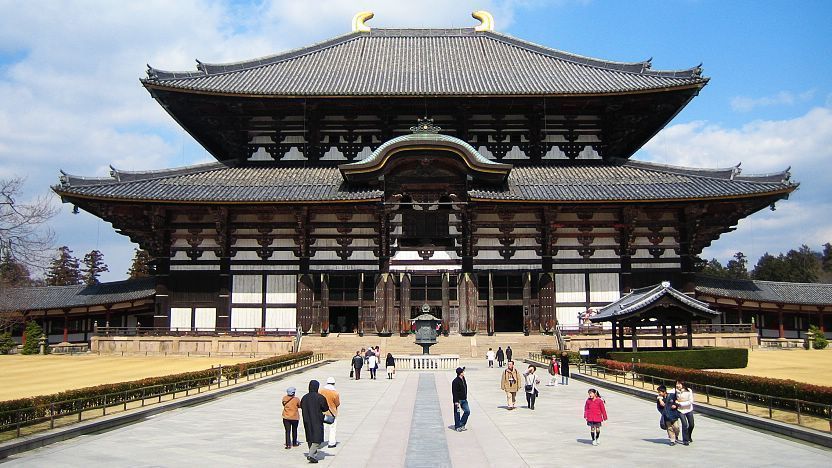Is AP Japanese Hard? Is AP Japanese Worth Taking
4 min read•november 18, 2020
J
Jordyn Haynes
J
Jordyn Haynes
AP Japanese 🇯🇵
28 resourcesSee Units
Thinking about taking AP Japanese, but aren't sure if it's right for you? Wondering if adding another AP class to your schedule is worth it? In this post, we'll discuss everything you need to know before enrolling in the AP Japanese course.
Exam Overview
Before we get into the specifics, let's cover the AP Japanese Exam. The test consists of two sections: Multiple Choice and Free Response.
Section 1A: Multiple Choice Listening 👂🏼
- Listen to audio from public announcements, voice messages, instructions, cultural presentations, radio broadcasts, uncontextualized dialogues, and school debates.
- Each type of media will have a question set of 2-5 related questions.
- 30-35 questions, 20 minutes.
Section 1B: Multiple Choice Reading 📖
- Read print sources such as journalistic articles, short stories, email inboxes, letters, step-by-step instructions, and travel brochures.
- Each type of source will have a question set of 3-5 questions.
- 30-40 questions, 1 hour.
Section 1A: Free Response Written ✍🏼
- Read and answer 6 text-message questions, 10 mins.
- Write a 300-400 character compare and contrast essay for two related topics and two opposing viewpoints, 20 mins.
Section 1B: Free Response Spoken 🔊
- Engage in a simulated conversation (4 prompts, 3 mins).
- Deliver a 2-minute presentation about your perspective on a Japanese cultural element or practice (1 prompt, 4 mins prep time, 2 mins delivery time).
Is AP Japanese Hard?
Like all other AP courses, AP Japanese requires hard work and a genuine desire to succeed. AP Japanese is generally a more niche AP test. Although the AP Japanese crowd is small, they do post some impressive scores.
AP Japanese Score Distribution (2019)
| Score | Percent% |
| 5 | 45.3 |
| 4 | 12.4 |
| 3 | 21.6 |
| 2 | 7.7 |
| 1 | 13 |
As you can see, almost half of AP Japanese students scored a 5 on this exam. The average score from 2019 was 3.9. The high percentage of passing scores is a result of the mix of native and non-native speakers who take the exam. However, no need to worry if you're not a native speaker! The AP Japanese course doesn't need you to become as advanced as a native speaker. To succeed on this exam, you need to demonstrate beginner to intermediate-level proficiency in reading, writing, and speaking.
What Will I Need to Know?
The AP Japanese Exam tests your ability to communicate in three different modes: interpersonal, interpretive, and presentational. On top of that, there are 7 learning objectives that you should be able to meet come time for the exam:
- Have a basic spoken conversation.
- Engage in written interpersonal communication.
- Connect information from a variety of authentic audio, visual, and audiovisual resources.
- Connect information from a variety of authentic written and print resources*.
- Plan, produce, and present spoken/written presentational communications*.
*The last two bullet points refer to the second FRQ section
In addition to linguistics, AP Japanese also focuses on elements of Japanese culture such as art, architecture, pop culture, common jobs, gender roles, and religion. Students are made aware of current and past social, political, and economic issues. You will examine these aspects of Japanese culture in both historical and contemporary contexts 🎎

The Todaiji temple is an example of a culturally important building that reflects aspects of Japanese architecture and religion. Image Courtesy of Japan Travel.
Is AP Japanese Worth It?
Whether you're a native speaker or a student looking to learn an exciting and fun new language, AP Japanese is definitely worth it. Many colleges and universities have a foreign language requirement that may be met if you score well on this exam. Additionally, taking AP Japanese in high school may enable you to take more advanced Japanese courses in college.
Speaking Japanese is a highly valuable skill. Japan has the third-largest economy in the world so having a solid base in Japanese is a major advantage for those considering careers in international relations, business, engineering, and a multitude of other fields.
What Students are Saying
To get some additional perspectives, we searched the internet for students' opinions about AP Japanese:
"I'd say if you understand all the grammar and 70-80% of the vocab on the exam, you're set. Just make sure to practice compare and contrast writing prompts. Also, know how to transition your thoughts and write without having to think too much about your sentences."—anniemac, student via College Confidential
"To become fluent in a language, you really have to listen to it and speak it often outside of the class. If you are interested in anything related to Japanese culture, or anime, their drama, go ahead and watch them, it's really helpful."—nrseries, student via College Confidential
Overall
Hopefully, you found this post useful as you try to figure out whether AP Japanese is worth taking. Now that you have learned about the skills required for AP Japanese, the exam logistics, and experiences/suggestions from students and teachers, is AP Japanese a class for you? Our answer: absolutely! You got this 🎉
Browse Study Guides By Unit
👨👩👧Unit 1 – Families in Japan
🗣Unit 2 – Language & Culture in Japan
🎨Unit 3 – Beauty & Art in Japan
🔬Unit 4 – Science & Technology in Japan
🏠Unit 5 – Quality of Life in Japan
💸Unit 6 – Challenges in Japan
✍️Exam Skills - FRQ/MCQ

© 2023 Fiveable Inc. All rights reserved.